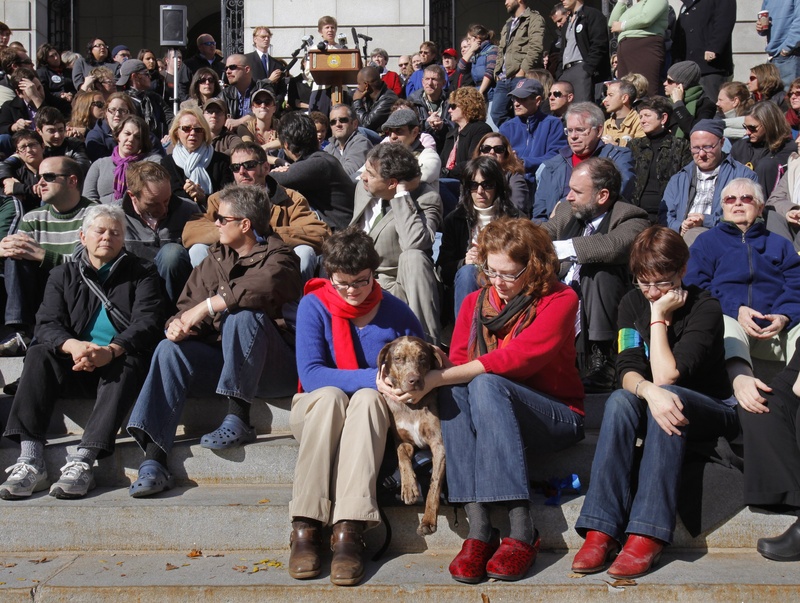While a federal judge in Portland upheld most of the state’s law regarding the activities of out-of-state political action committees, the decision leaves the most important question unresolved.
U.S. District Court Judge D. Brock Hornby ruled that the National Organization for Marriage would indeed have to register as a Maine PAC if it raised or spent more than $1,500 in support or in opposition to candidates in state elections. That means NOM would have to identify its officers and fundraisers and make that information available to the public.
What is still pending, however, is NOM’s contention that it should not have to list the names of the donors who support the organization’s work in Maine, as is required by Maine law.
It may be true that, as NOM claims, that this could discourage people from contributing to a controversial cause. But the disclosure law also provides voters with important information that could affect their decision-making.
Maine voters should know who wants to influence their elections so they can put the campaign message in context. The court should uphold the disclosure requirement when it makes its eventual ruling.
NOM is a New Jersey-based group that has raised money and supported campaigns to fight same-sex marriage in several states. Last year, NOM provided $1.9 million to support Question 1, the people’s veto campaign that overturned Maine’s same-sex marriage statute. NOM claimed that it should not have to reveal the names of its donors and separately that it should not have to register with the state as a PAC if it wanted to pay for independent media advertisements that identified the position incumbent lawmakers took when the marriage issue was before the Legislature.
Hornby found that some of the language in the PAC rules was “unconstitutionally vague” and that a requirement that a PAC had to disclose an expenditure within 24 hours was burdensome and unenforceable.
But he upheld the requirement that a group that comes to the state to impact the outcomes of our elections should have to register, even if Maine politics is not the main focus of their activities. The same logic should lead Hornby to uphold Maine’s requirement that contributors to such PACs be identified.
Maine voters should know who is spending money to win their votes so they can use that information when they are evaluating the message. This is not just true for the marriage issue, but in all elections.
Send questions/comments to the editors.



Success. Please wait for the page to reload. If the page does not reload within 5 seconds, please refresh the page.
Enter your email and password to access comments.
Hi, to comment on stories you must . This profile is in addition to your subscription and website login.
Already have a commenting profile? .
Invalid username/password.
Please check your email to confirm and complete your registration.
Only subscribers are eligible to post comments. Please subscribe or login first for digital access. Here’s why.
Use the form below to reset your password. When you've submitted your account email, we will send an email with a reset code.